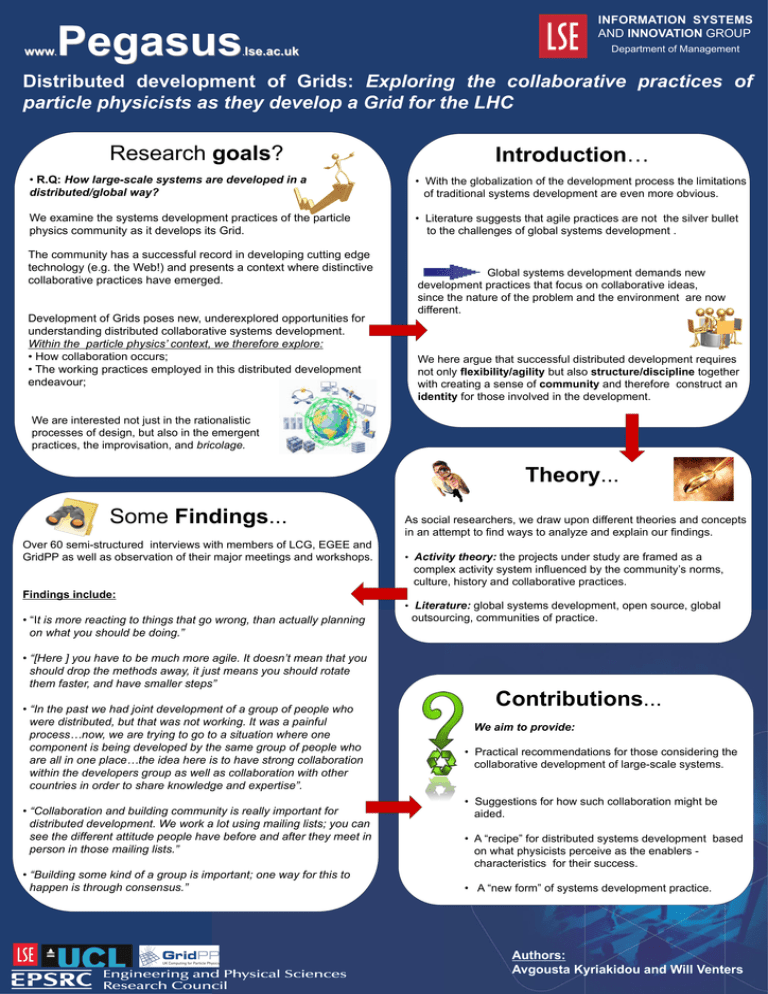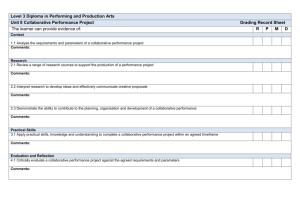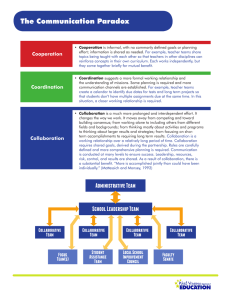Pegasus Introduction … goals
advertisement

Pegasus www. INFORMATION SYSTEMS AND INNOVATION GROUP Department of Management .lse.ac.uk Distributed development of Grids: Exploring the collaborative practices of particle physicists as they develop a Grid for the LHC Research goals? Introduction… • R.Q: How large-scale systems are developed in a distributed/global way? • With the globalization of the development process the limitations of traditional systems development are even more obvious. We examine the systems development practices of the particle physics community as it develops its Grid. • Literature suggests that agile practices are not the silver bullet to the challenges of global systems development . The community has a successful record in developing cutting edge technology (e.g. the Web!) and presents a context where distinctive collaborative practices have emerged. Development of Grids poses new, underexplored opportunities for understanding distributed collaborative systems development. Within the particle physics’ context, we therefore explore: • How collaboration occurs; • The working practices employed in this distributed development endeavour; Global systems development demands new development practices that focus on collaborative ideas, since the nature of the problem and the environment are now different. We here argue that successful distributed development requires not only flexibility/agility but also structure/discipline together with creating a sense of community and therefore construct an identity for those involved in the development. We are interested not just in the rationalistic processes of design, but also in the emergent practices, the improvisation, and bricolage. Theory... Some Findings... Over 60 semi-structured interviews with members of LCG, EGEE and GridPP as well as observation of their major meetings and workshops. As social researchers, we draw upon different theories and concepts in an attempt to find ways to analyze and explain our findings. • Activity theory: the projects under study are framed as a complex activity system influenced by the community’s norms, culture, history and collaborative practices. Findings include: • Literature: global systems development, open source, global • “It is more reacting to things that go wrong, than actually planning on what you should be doing.” outsourcing, communities of practice. • “[Here ] you have to be much more agile. It doesn’t mean that you should drop the methods away, it just means you should rotate them faster, and have smaller steps” • “In the past we had joint development of a group of people who were distributed, but that was not working. It was a painful process…now, we are trying to go to a situation where one component is being developed by the same group of people who are all in one place…the idea here is to have strong collaboration within the developers group as well as collaboration with other countries in order to share knowledge and expertise”. • “Collaboration and building community is really important for distributed development. We work a lot using mailing lists; you can see the different attitude people have before and after they meet in person in those mailing lists.” • “Building some kind of a group is important; one way for this to happen is through consensus.” Contributions... We aim to provide: • Practical recommendations for those considering the collaborative development of large-scale systems. • Suggestions for how such collaboration might be aided. • A “recipe” for distributed systems development based on what physicists perceive as the enablers characteristics for their success. • A “new form” of systems development practice. Authors: Avgousta Kyriakidou and Will Venters


